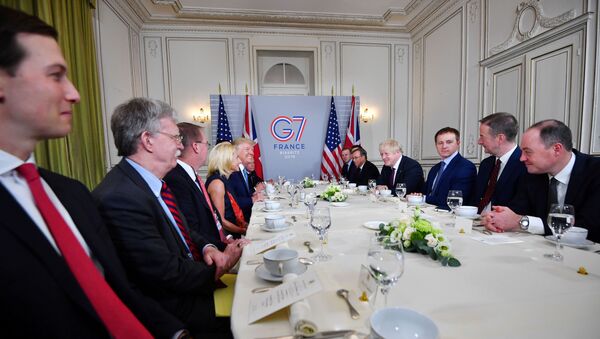Earlier, another EU source said that the possible invitation to Russia back in G7 was discussed at the G7 leaders' dinner in Biarritz, but no agreement was reached.
"On that point … it became a bit tense to say the least. Most of the other leaders insisted on this being a family, a club, a community of liberal democracies and for that reason they said you cannot allow [Russian] President [Vladimir] Putin – who does not represent that – back in," a European diplomat told the Guardian newspaper.
According to sources, only the outgoing Italian Prime Minister Giuseppe Conte supported Trump's idea, while Japanese Prime Minister Shinzo Abe took a neutral position. The remaining members of the group strongly opposed this proposal.
On Tuesday, Trump agreed to French President Emmanuel Macron's proposal to invite Russia to the 2020 G7 summit in the United States. Trump also said that Russia should return to what used to be G8. While some countries, like Japan, are open to the idea, others, like Canada, remain stridently opposed to it. Russian President Vladimir Putin said this week that his country saw any form of dialogue with G7 nations as useful.
The G8 format had been in place from 1998-2014 but was then reduced to the G7 due to disagreements with Russia regarding the events in Crimea and Ukraine. The G7 has accused Moscow of interfering in Ukraine’s domestic affairs and introduced sanctions on Russia as a result.


